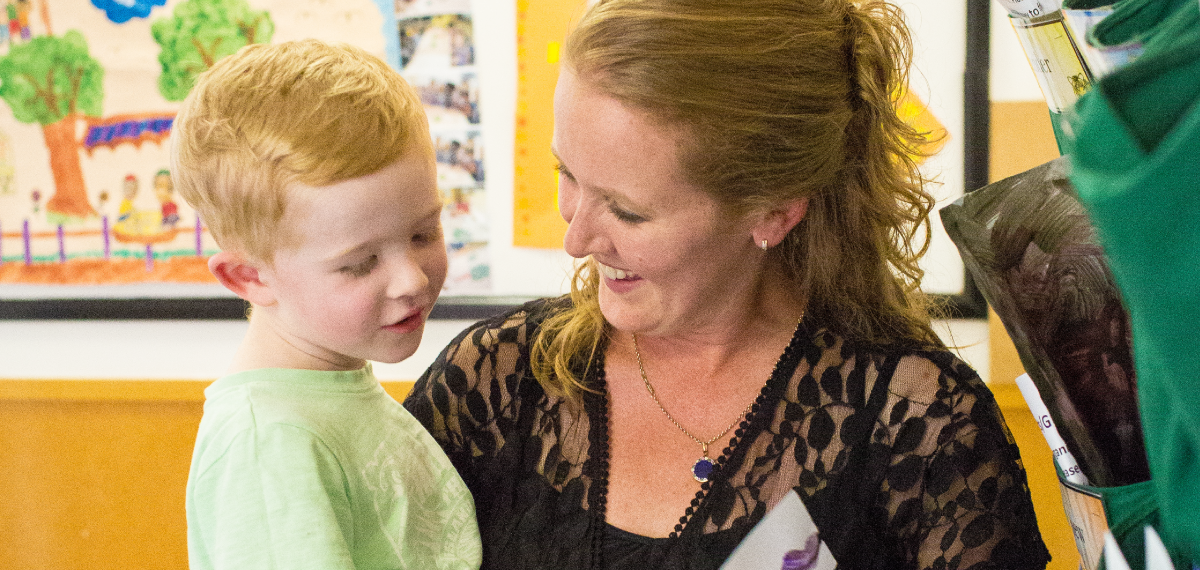
ECA Learning Hub
Search results: 145


In this course, you will be introduced to the 6Rs Framework, which has been designed to help you better understand and respond to children’s behaviour. The Framework was developed in response to the increasing rates of challenging behaviours that have been reported by educators, and also in response to the need to identify alternate ways of supporting children, particularly at times of challenge or stress. The 6Rs to supporting children's behaviour captures key understandings and practices that underpin effective pedagogy and behavioural support for young children.

Affordance theory course will explore the relationship between the child and the environment and the actions possible within this. It will encourage you to reflect on your own perceptions of the environment and the affordances established, and consider the ways in which the outdoor environment can be maximised to support children’s engagement in learning.
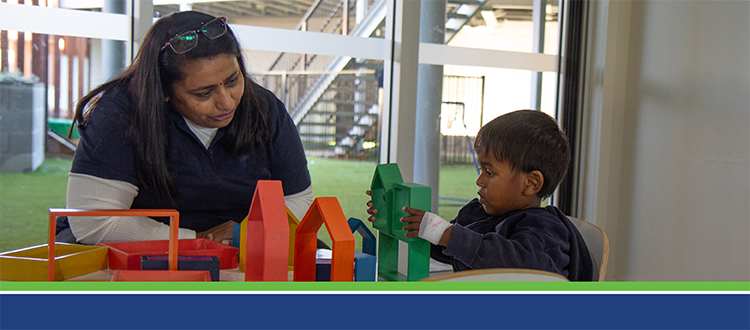
In this course, you will explore two key components of the 6Rs Framework to support children’s behaviour: relationships and respect. We know that children flourish when they’re in the context of reciprocal, responsive and respectful adult–child relationships. In this course, you will unpack key components of effective teacher–child relationships and appreciate the need to attune our behaviours to children’s needs. You will think deeply about how you demonstrate value and respect for children, and the importance of building trust and connection with their families.

In this course, you will explore the final two components of the 6Rs Framework: responses and research. You will discover the need for evidence-based practice and the importance of having an ongoing commitment to critical reflection. Research underpins each key component of the 6 Rs framework, but the ‘r’ for research is a reminder of how important it is for you to draw on your practices that we know actively support children developing self-regulatory capacities.
Research empowers your practices and decisions and ensures you have a credible voice. It helps you to have those difficult conversations that sometimes you need to have with colleagues and families. Research also gives you confidence in your pedagogical decisions and ensures that the practices that you’re implementing are going to benefit children.
This course is suitable for all educators looking to build their confidence in supporting children and families who are experiencing vulnerability in an approved education and care setting. This is a foundation course that may be suitable for educators new to the sector or embarking on a formal early childhood qualification.
Learners will have the opportunity to develop an understanding of what vulnerability is, how to recognise it, and develop strategies to support vulnerable children and families. You will learn the importance of advocating for vulnerable children and families, engaging in reflective practice, and ways to create a community of support within your service to approach vulnerability with more confidence.
In this course, you will:
- develop an understanding of what vulnerability means in early childhood education and care
- learn strategies to support children and families in your service who are experiencing vulnerability
- learn about advocating for children's families and communities.

In this course, you will learn about stress, pressure and burnout and how these may impact your lifestyle. The course critically examines stress, pressure and burnout and provides strategies that you can use to manage your stress and increase your mental focus. It also explores the difference between stress and pressure and will help you gain a deeper understanding of what burnout is.
The course is suitable for all education and care childhood professionals—at any stage of their careers—who are interested in learning about stress, pressure and burnout and want to develop strategies to optimise their performance when under pressure.In this course, you will:
- explore the difference between stress and pressure
- understand different strategies to manage your stress and increase mental focus
- implement ways to optimise your performance when working under pressure
- explore what burnout is and how it differs from stress.
This course expands on the ideas and concepts outlined in the introductory course, ‘Documenting and assessing children’s learning with Dr Anne Kennedy’. It is highly recommended—though not essential—that you complete the introductory course before starting this course, which delves deeper into the topic. It will help you learn a variety of strategies and new ways to document and assess children’s learning. You will understand the importance of documentation and how it is essential to driving children’s learning and high-quality educational programs.
You will hear from services about the methods and strategies they use when documenting and assessing children’s learning, and you will be invited to reflect on and consider your own practice moving forward. You will also be encouraged to consider research, theory and practice in your work and how this underpins children’s learning and development. The planning cycle—which is the foundation of the educational program, future planning and each child’s learning and development—will also be explored in depth.
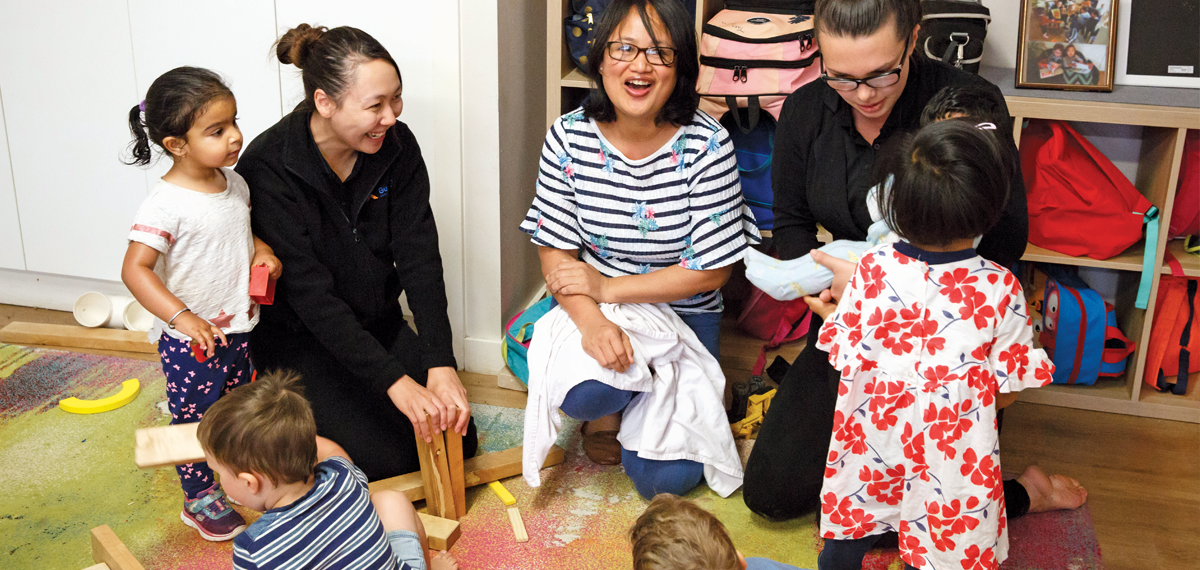

This course has been developed to help educators create a useful, accurate Quality Improvement Plan (QIP). It provides advice and examples on how a QIP can support early childhood settings to assess their current performance, recognise what they do well, and plan effectively for future improvements using the model of the quality improvement spiral as a process foundation.
In this course, you will:
- understand the requirement of developing and maintaining a Quality Improvement Plan under the National Quality Framework
- understand the compulsory self-assessment and quality-improvement processes of early childhood settings
- unpack how a Quality Improvement Plan can support continuous improvement
- use realistic assessment of current practice as the basis for a successful Quality Improvement Plan
- reflect on practice and identify areas for improvement over time.

This course elaborates on how documenting and assessing children’s learning helps educators gain a deeper understanding of children’s interests, strengths and abilities. It also explains how educators can use this knowledge to support and extend children’s learning.
In this course, you will:
- learn about the purpose of documenting children’s learning
- uncover common myths about documentation
- discover how to save time and make documentation more effective
- find out how to use documentation within your planning
- explore the practices and philosophies of 2 services.

This course is designed to support educators in developing a better understanding of the complexity of children’s behaviour and why a timely and consistent approach is important. You will be asked the question: Why do some children respond or behave in certain ways? If educators think about children’s behaviour as a form of communication, the first thing you need to ask yourself is: What is a child saying when they retreat from a difficult situation, communicate non-verbally, refuse to share, fight over resources, or experience unpredictable outbursts?
You will explore the pathways to emotional regulation and consider possible behaviours children may demonstrate when they are in a state of dysregulation. By engaging with this course, you will develop a deeper appreciation for the foundational nature of regulation for children’s learning, as well as the negative impact of stress on children’s emotions and behaviour, and any barriers to their capacity to learn or engage.
You will be encouraged to adopt an individualised lens for understanding and supporting children’s behaviour, and you will do this through an exploration of potential sources of stress and by identifying common behavioural and environmental triggers, both within and outside your early learning service settings. By developing a better understanding of children’s experiences, developmental pathways and sensitivities, educators are empowered to support children’s social, emotional and behavioural capabilities.
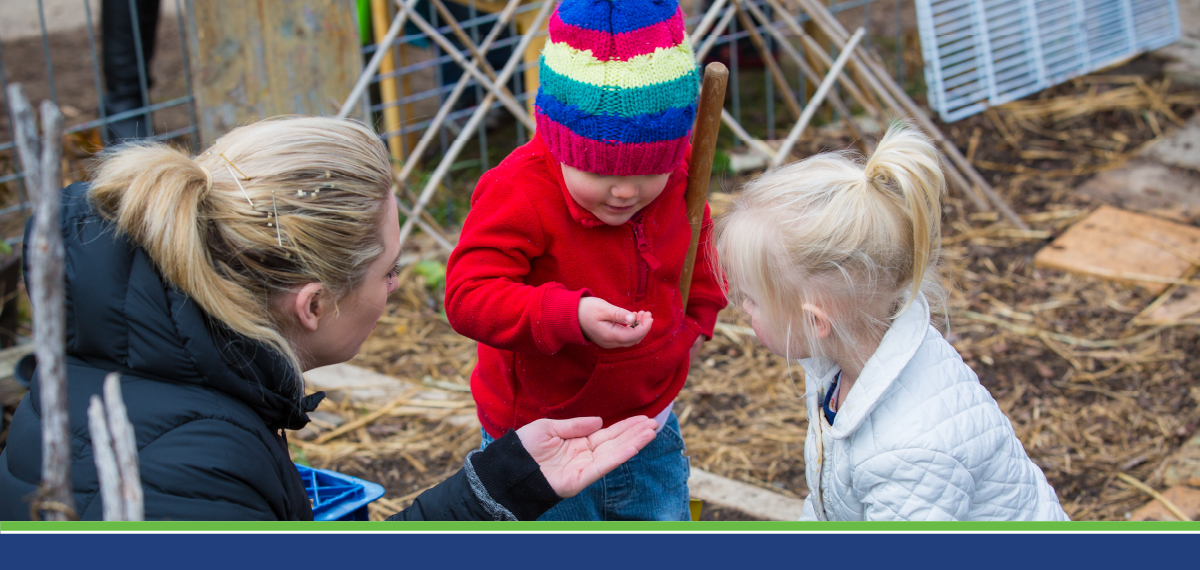
What does sustainability mean, and how can educators build sustainability within early childhood education and care services in meaningful ways?
Education for Sustainability, written by Deb and Julie of the NSW Early Childhood Environmental Education Network(ECEEN), looks at ways educators and families can promote sustainability within both their service and their community. When we engage in sustainability education in early childhood settings, we are aiming to create living and learning spaces that reflect and encourage sustainable practices now and into the future.
In this course, you will understand:
- the meaning of sustainability and its importance for young children, educators and early childhood education and care services
- how sustainability is viewed in the National Quality Standard and the EarlyYears Learning Framework, and
- the tools educators can use to assess and improve sustainability in everyday practices.
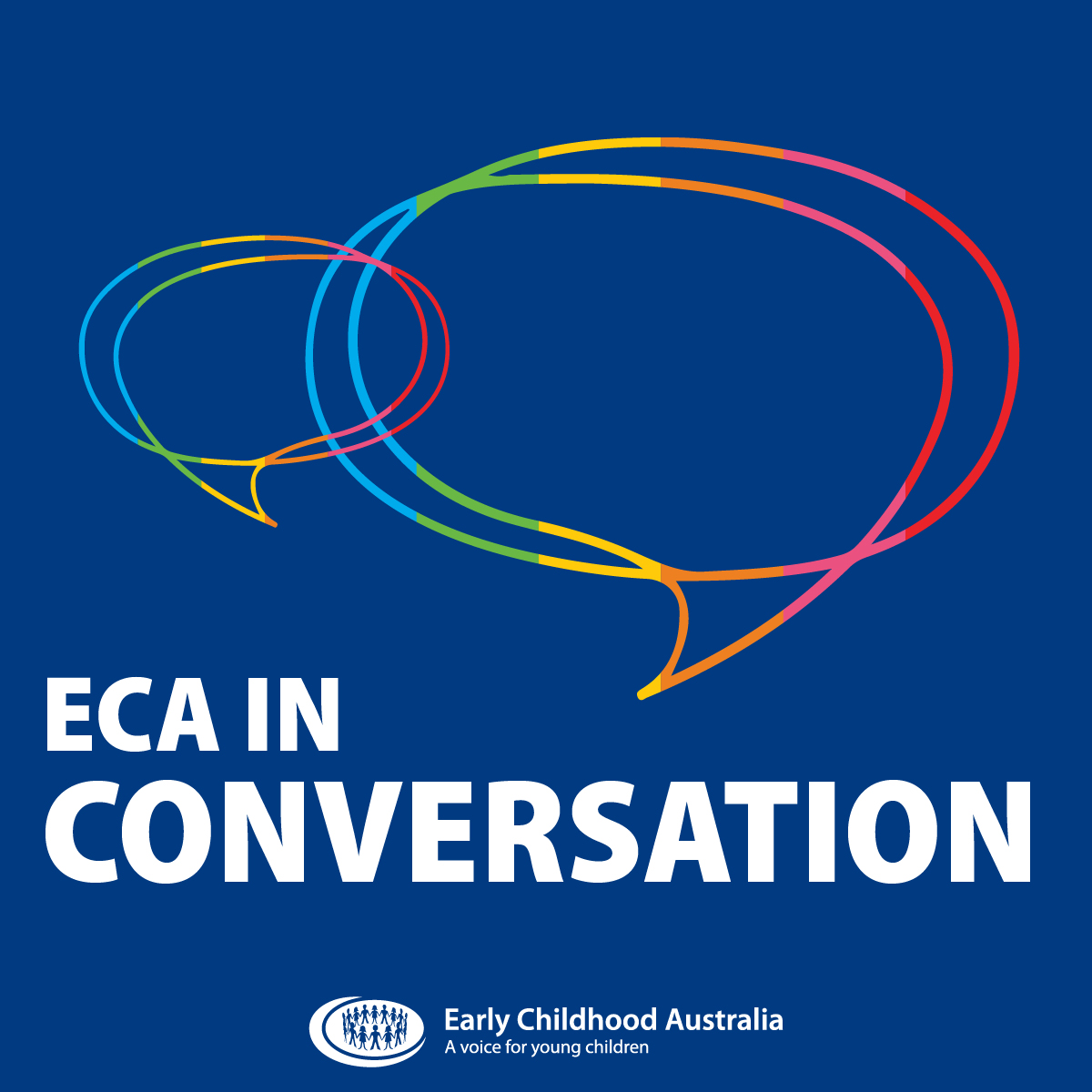
*** This is a recorded version of a live event ***
“Being ethical involves thinking about everyday actions and decision making, either individually or collectively, and responding with respect to all concerned” (ECA Code of Ethics, 2016). The release of EYLF V2 is a perfect time to take a moment to reflect on the continued connection of the document to the ECA Code of Ethics. As professionals, we have a number of ethical responsibilities and engaging in critically reflective dialogue around ethical pedagogy is one of these.
In this webinar, Catharine Hydon and Linda Newman discussed:
- the complimentary nature of the ECA Code of Ethics and the Early Years Learning Framework
- the role of ethics in professional practice
- examples of what ethical practice might look like in early childhood settings.

It may seem as though the early childhood sector has been the subject of constant reform over the past two decades, and really it has! With the design of national curriculum frameworks and the introduction of the National Quality Framework, along with reforms around child care subsidises and kindergarten funding, early childhood professionals may feel as though their heads are spinning. While the constant changes do present some challenges, it is important to also view these through a lens of opportunity and advocacy, particularly as we learn more about quality in the early childhood sector.
In this webinar, Catharine Hydon and Fay Hadley discuss:
- how to use data and evidence to support continuous quality improvement
- a selection of recommendations and implications from recently reviewed documents and their potential impacts on early childhood education and care settings and professionals
- how early childhood professionals can actively engage in advocacy for reform.
*** This is a recorded version of a live event ***
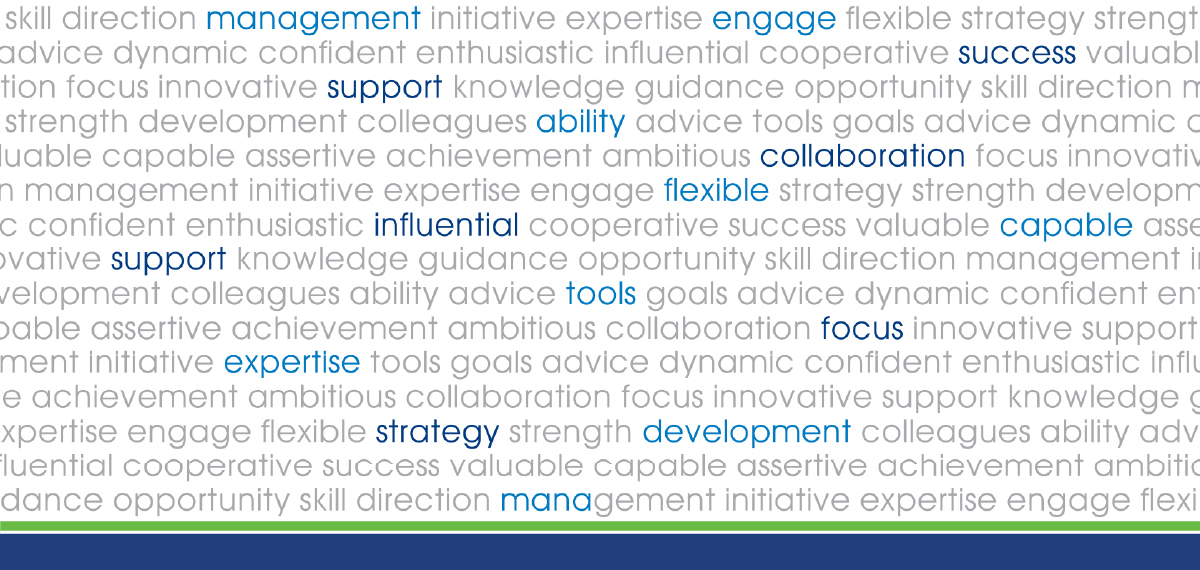
ECA’s Leadership Program, revised in 2021, is a renowned program for educational leaders and teachers in leadership roles. Founded on solid expert research and five years of sector consultation, this essential leadership framework has been designed by early childhood experts and quality assured by early childhood practising leaders. Our Leadership Program was specifically created as a strengths-based, self-directed, short-term program for both current and aspiring early childhood leaders in diverse settings.
The program includes access to:
- online professional learning modules and webinars
- the ECA Leadership Program folder containing the hardcopy Leadership Capability Framework and a ‘how-to’ guide with suggestions on how to make the most of the Framework
- the opportunity to develop your own Personalised Professional Learning Plan relevant to your individual work environment and development priorities
- respected leaders within the sector who can provide tailored feedback (optional) on your Personalised Professional Learning Plan
- an ECA Leadership Program completion certificate.
We hope you enjoy the format and the content of the program. It has been designed to support you and your team to take responsibility for professional growth and is part of the pathway toward building personal and professional capacity and professional identity.
Take a moment and join Early Childhood Australia in thanking the Traditional Custodians of the lands on which we stand, by watching this Acknowledgement of Country.
- Teacher: Shae Haylen

ECA’s Leadership Program, revised in 2021, is a renowned program for educational leaders and teachers in leadership roles. Founded on solid expert research and five years of sector consultation, this essential leadership framework has been designed by early childhood experts and quality assured by early childhood practising leaders. Our Leadership Program was specifically created as a strengths-based, self-directed, short-term program for both current and aspiring early childhood leaders in diverse settings.
The program includes access to:
- online professional learning modules and webinars
- the ECA Leadership Program folder containing the hardcopy Leadership Capability Framework and a ‘how-to’ guide with suggestions on how to make the most of the Framework
- the opportunity to develop your own Personalised Professional Learning Plan relevant to your individual work environment and development priorities
- respected leaders within the sector who can provide tailored feedback (optional) on your Personalised Professional Learning Plan
- an ECA Leadership Program completion certificate.
We hope you enjoy the format and the content of the program. It has been designed to support you and your team to take responsibility for professional growth and is part of the pathway toward building personal and professional capacity and professional identity.
Take a moment and join Early Childhood Australia in thanking the Traditional Custodians of the lands on which we stand, by watching this Acknowledgement of Country.
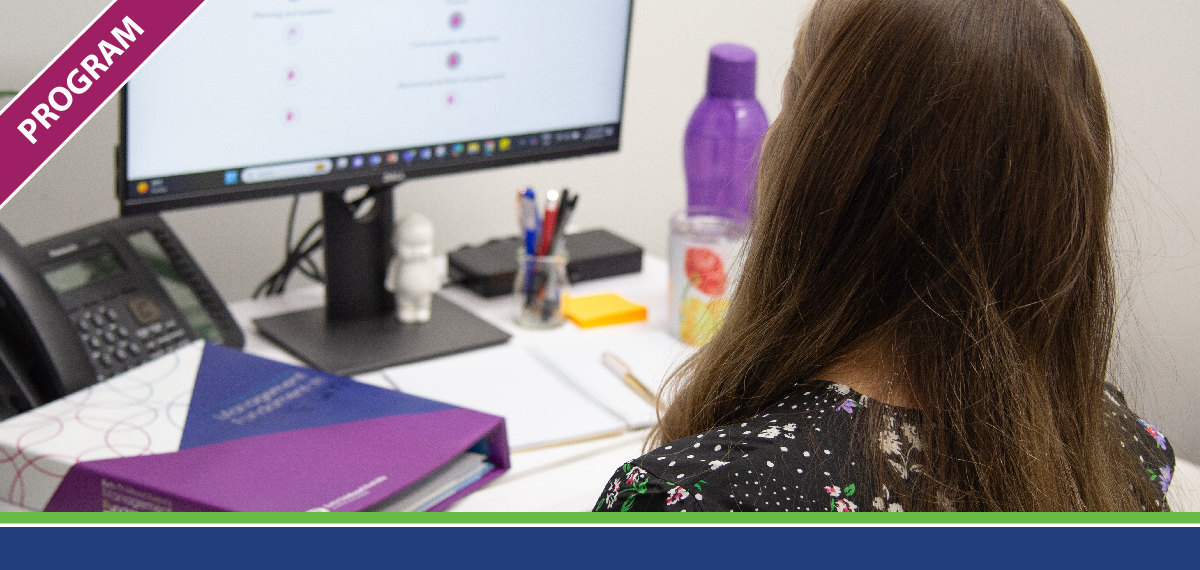
Management and leadership are companions in the delivery of high-quality education and care service provision. This program has been designed to strengthen the management capability of service managers—helping them to build their skills, knowledge and confidence to meet their day-to-day responsibilities in whatever service or organisation type they work in. The courses in the ECA Management Fundamentals Program will build on the strengths that education and care professionals bring to their management role and ensure they are prepared to take on other roles across the scope of the education and care sector. The diversity of settings and roles has brought about different levels of management responsibility and obligations to those in governance roles, owners, staff, communities and the sector.
In the early childhood sector, particularly in standalone services, people often find themselves stepping into management roles with little or no management training. It can be daunting and stressful, particularly for those who do not have a highly skilled and supportive governing body.
Recent research into new managers’ perceptions of their own preparedness to manage/lead found that a large percentage of them did not feel well prepared in terms of managing/leading the centre as an organisation, but felt well prepared to manage and lead elements related to pedagogy. Common challenges experienced by new managers were identified in the organisational leadership domain. Managing staff was ranked as the number-one challenge by managers three times more than any other aspect. In addition, 44% of managers surveyed indicated they would pursue a management/leadership qualification and 41% said perhaps they would.
Despite the apparent interest in upskilling, there is a lack of good quality, sector-specific management training for first-time managers. The ECA Management Fundamentals Program has been designed to prepare managers in foundational aspects of governance and leadership, specifically in the education and care context.By completing this Program, participants will be able to apply the following learning outcomes:
- explain the purpose of management
- recognise an education and care service as a business in a complex sector
- identify key functions and systems of management
- recognise management concepts in the education and care service context
- understand more recent approaches to managing organisations.
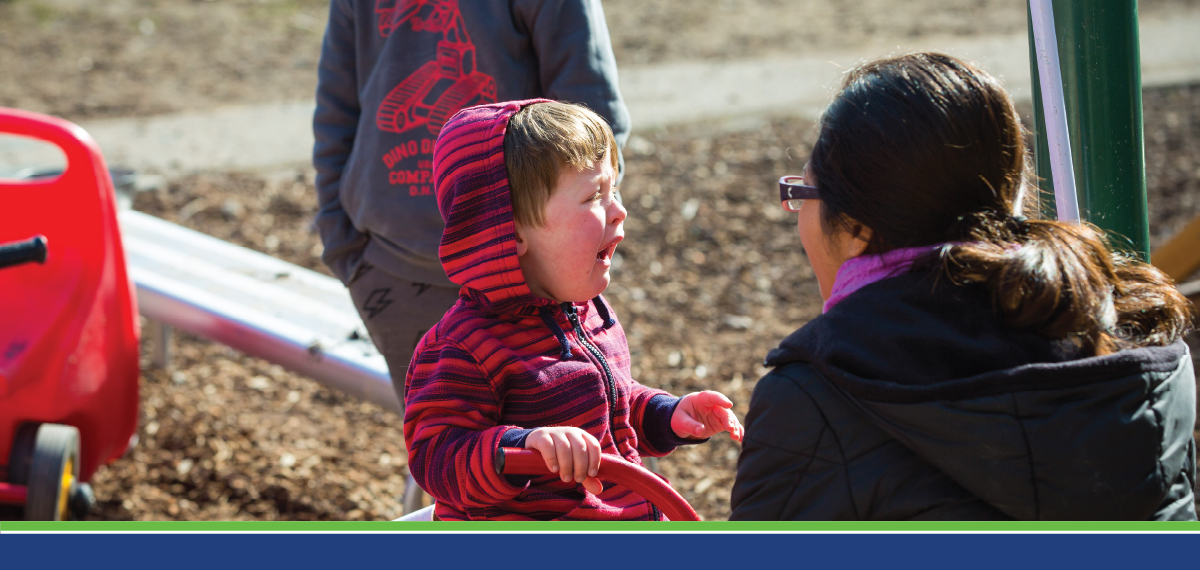
This webcast has been designed for educators on how to be effective with children with big feelings and behaviours. Particularly across long term and the short term. This course explores the five steps of Emotion Coaching: emotional awareness, connecting, listening, naming emotions and finding good solutions. When used effectively, Emotion Coaching can be used by educators and other professionals working with young children to build trusting and respectful relationships.
This course will support educators to:
- understand the steps and approaches to Emotion Coaching
- be able to draw on and use Emotion Coaching techniques in various situations
- build trusting and respectful relationships with children
- be able to assist children to identify and self-regulate their emotions
- understand how emotion coaching can assist children to problem solve and find good solutions
- be able to use moments of negative behaviour as opportunities for teaching.
